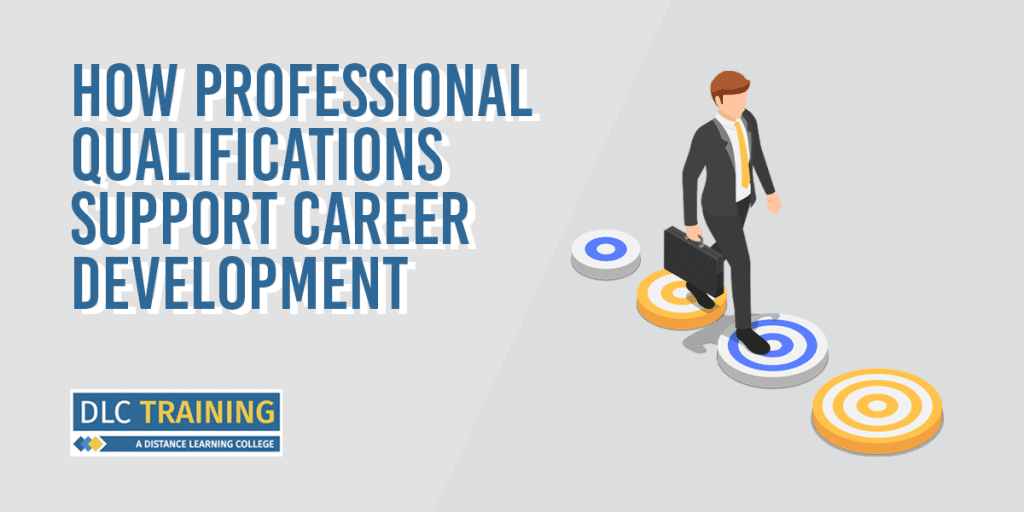When it comes to career development, the first port of call for many is to study a professional qualification. They not only provide you with a recognised certification, but they also equip you with the skills, knowledge, and practical insights essential to your career progression.

What Is A Professional Qualification?
Professional qualifications are the credentials and certifications that individuals obtain to validate their expertise and competence in a specific field. They are awarded by professional bodies and institutes such as the Chartered Management Institute (CMI) or the Institute of Supply Chain Management (IoSCM). To achieve a professional qualification, you will need to complete a training programme, to ensure you can meet the skill and knowledge requirements of the industry.
Professional qualifications enhance your credibility while demonstrating a commitment to continuous learning and professional development. They often serve as a benchmark for employers to gauge your skills, knowledge, and dedication to your profession.
Enhancing Your Career With A Professional Qualification
Professional qualifications aren’t a one-time achievement, although many people will complete one with no forethought for continuous development. It’s important to understand that different levels support you with different stages of your career. If you continue your professional qualifications as you progress through your career, you will benefit from more responsibilities and better promotional opportunities.
Generally, the stages of a career include:
- Entry Level
- Development
- Mid-Career
- Late Career
Entry Level
The entry level career stage consists of gaining initial employment in your chosen field. Within this role, you will acquire foundational skills and gain practical experience.
The average salary for an entry level role in the UK is £24,781. This will vary greatly, depending on the role, the industry, and the location. It’s important to note that the base pay could be lower if the role has training conditions or is commission-based.
When you are looking to move into a new industry it’s beneficial to study an introductory level 2 qualification. Having this level of qualification will show employers your commitment to working in the sector, which will help you to make a good impression when applying.
Development
The development stage consists of building on initial experiences, improving skills, and taking on more responsibilities within your chosen career. This stage is particularly important, as your progression during this stage could determine the route your career takes.
When developing your knowledge base, it’s beneficial to study a level 3 qualification within your chosen field. This will help you get ahead of the rest by excelling your learning while covering topics in depth that you may not have had the opportunity to do within your role.
Mid-Career
In your mid-career you will have a higher level of expertise. It’s likely that you will be working in a leadership role or specialising within your sector while making significant contributions. In the UK, the average salary for a mid-level role is £42,643. Although, this will vary widely depending on the role, industry, location and experience.
At this stage of your career, it’s beneficial to consider studying a level 5 or level 6 qualification. These qualifications will typically include comprehensive content and advanced insights, supporting learners with their higher levels of responsibility. Gaining a qualification at this stage of your career will put you in the best position for fast-tracking promotion to more senior level roles.
Late Career
At this stage of your career, you will have gained substantial experience in your field of expertise. During this time, you will be serving as a senior expert or leader, mentoring others, and solidifying your legacy in the profession.
The average salary in the UK for this level role is £55,000, although, this will vary depending on the role itself, the industry and the location.
If you are looking to gain a qualification at this level, the most suitable level for you would be the most advanced level, level 7. With this level, you will distinguish yourself as an expert leader in your industry. By formalising your experience with this level of qualification, you will be able to access even more opportunities that you may want to pursue in the industry.
Achieving a Professional Qualification
At every career stage, a professional qualification can support you in advancing your career even further. No matter what stay of your career you are at, achieving a qualification will support you in advancing your salary potential within your role, develop your skills and knowledge, and improve your opportunities for promotion and career progression.
Discover DLC Training’s full range of professional qualifications. Contact us today for advice on choosing the most suitable course for your career development.